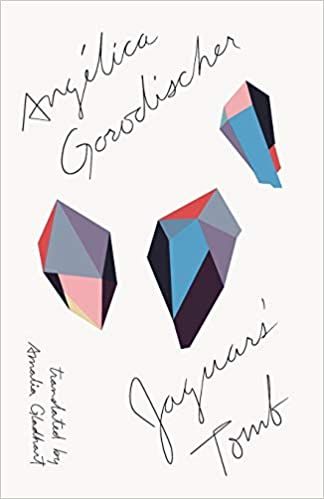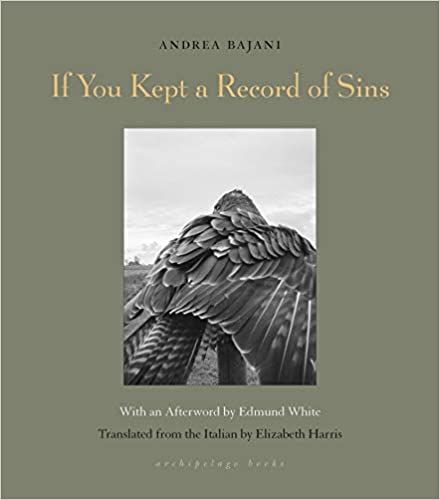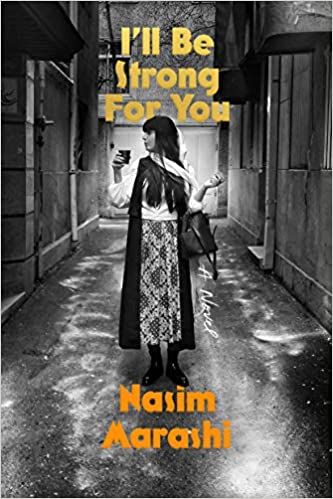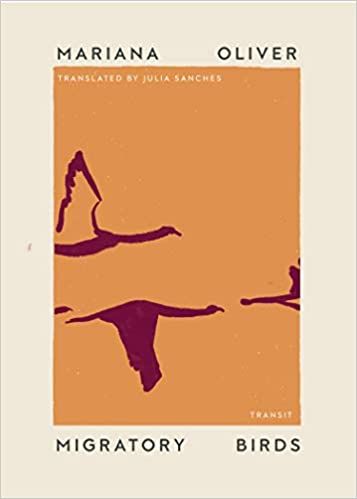This post contains affiliate links. When you buy through these links, Book Riot may earn a commission.
I’m so excited about the 2021 books in translation that are coming to us! I sat down to compile a list of forthcoming books I’m eager to read, and found a lot. Then I asked for suggestions on Twitter and learned about many, many more (check out the Twitter thread if you want your TBR to explode!). 2021 promises to be an excellent year for reading internationally.
I decided to focus solely on small and independent presses for this round-up. Yes, the major publishers do put out great books in translation, but it’s the small presses that do a lot of the work of discovering new and exciting writers and developing the careers of writers and translators around the world. I prefer to focus on them when I can. I also included only one book per publisher, so below you will find books from 24 different presses.
This list is focused on the first half of the year (mostly), and is my own highly idiosyncratic take on what looks interesting. I haven’t read any of these books yet, and I can’t wait to dive in!
Slash and Burn by Claudia Hernández, Translated by Julia Sanchez (And Other Stories, January 5)
A story of women’s struggles in the midst of political violence in an unnamed Latin American country, focusing on one woman’s quest to keep her daughters safe.
The Bridgetower Sonata by Emmanuel Dongala, Translated by Marjolijn de Jager (Schaffner Press, February 1)
A historical novel about a violin prodigy in 18th century Europe. He is of mixed-race parentage, proclaimed the “Black Mozart,” and welcomed—for a while—into high-class society.
The Lost Soul by Olga Tokarczuk and Joanna Concejo, Translated by Antonia Lloyd-Jones (Seven Stories Press, February 2)
An illustrated story for readers of all ages. Author and illustrator create a parallel universe full of secrets. It’s a story about living in peace with ourselves.
In Memory of Memory by Maria Stepanova, Translated by Sasha Dugdale (New Directions, February 9)
A genre-bending look at a century of life in Russia. The narrator sorts through an apartment after her aunt’s death and contemplates her family story.
Jaguar’s Tomb by Angélica Gorodischer, Translated by Amalia Gladhart (Vanderbilt University Press, February 15)
A puzzle-like novel told by three interconnected narrators. It’s a meditation on violence and loss that responds to violence in Argentina during its military dictatorship.
How to Order the Universe by María José Ferrada, Translated by Elizabeth Bryer (Tin House, February 16)
The story of 7-year-old M. who skips school to accompany her father, a traveling salesman. They travel through Chile as it is going through change.
An I-Novel by Minae Mizumura, Translated by Juliet Winters Carpenter (Columbia University Press, March 2)
A semi-autobiographical novel about a single day in the 1980s, first published in 1995. The narrator talks to her sister and considers her decision to move back to Japan from the U.S.
Zabor, or The Psalms by Kamel Daoud, Translated by Emma Ramadan (Other Press, March 2)
A response to/retelling of the Arabian Nights, similar to Kamel Daoud’s reworking of Camus’s The Stranger in his book The Meursault Investigation. Zabor writes in order to stave off his father’s death.
If You Kept a Record of Sins by Andrea Banjani, Translated by Elizabeth Harris (Archipelago, March 2)
The story of a young man whose mother left her home in Italy to build a business in Romania. Now he’s traveling to Romania for her funeral and contemplating his life and modern-day Europe.
My Heart by Semezdin Mehmedinovic, Translated by Celia Hawkesworth (Catapult, March 9)
An autobiographical novel about a family’s experiences of trauma in the Bosnian war and a story of love, memory, and grief. The narrator considers his life from his hospital bed.
The Woman in Valencia by Annie Perreault, Translated by Ann Marie Boulanger (QC Fiction, April 1)
The story of three women whose lives are changed by one powerful incident. Claire Halde is on vacation in Valencia when she witnesses this incident and her life begins to unravel.
I’ll Be Strong for You by Nasim Marashi, Translated by Poupeh Missaghi (Astra House, April 6)
Three young women in Tehran take different paths in their post-college years, struggling to find their way forward. The novel takes place during a summer and fall and follows the women’s fates and friendships.
World’s Best Mother by Nuria Labari, Translated by Katie Whittemore (World Editions, April 6)
A novel about a woman’s experiences with IVF, pregnancy, and motherhood. She tells her own experiences while contemplating ideas about motherhood from the past.
A Perfect Cemetery by Federico Falco, Translated by Jennifer Croft (Charco Press, April 6)
Short stories set in the mountains of Argentina. These are stories about love, connection, longing, and obsession. They are about people struggling to find ways to reinvent themselves.
Terminal Boredom: Stories by Izumi Suzuki, Translated by Polly Barton, Sam Bett, David Boyd, and Daniel Joseph (Verso, April 20)
Short stories about conflicts between the sexes and the grittiness of reality, but also with fantastical elements. Izumi Suzuki is famous in Japan for her speculative fiction.
In Concrete by Anne Garréta, Translated by Emma Ramadan (Deep Vellum, April 21)
An absurdist story about a man who gets a concrete mixer and proceeds to change every aspect of his and his family’s life. Garréta is a member of the experimental group Oulipo and this novel is full of puns and word play.
Nervous System by Lina Meruane, Translated by Megan McDowell (Graywolf Press, May 18)
A novel of family and illness. Ella is working on a doctorate in astrophysics and struggling with writer’s block. Then she begins to experience mysterious symptoms.
Among the Hedges by Sara Mesa, Translated by Megan McDowell (Open Letter, May 18)
A novel about Casi, who has been skipping school to hang out in a local park, and her relationship with Viejo, an older man who may or may not be a danger.
Heaven by Mieko Kawakami, Translated by Sam Bett and David Boyd (Europa Editions, May 25)
The story of a 14-year-old student who is bullied for having Amblyopia and the classmate who understands his predicament. The novel engages with philosophical debates about violence.
Slipping by Mohamed Kheir, Translated by Robin Moger (Two Lines Press, June 8)
Seif is a journalist who meets a new source with knowledge of Egypt’s magical spaces. Together, they embark on a fantastical journey that leads into Seif’s past.
Migratory Birds by Mariana Oliver, Translated by Julia Sanches (Transit Books, June 8)
Part of Transit Books’ Undelivered Lectures series. A mix of criticism, essay, and travel writing, the book meditates on migration and loss.
Hard Like Water by Yan Lianke, Translated by Carlos Rojas (Grove Press, June 15)
A novel about politics and desire. This is an adventure story about two revolutionaries who fall into a forbidden romance in their Chinese village. Their relationship threatens their social and political status.
Distant Fathers by Marina Jarre, Translated by Ann Goldstein (New Vessel Press, June 22)
A memoir about the author’s childhood in 1920s and 1930s Latvia and then in Italy. A portrait of the author’s multinational family that touches on time, language, and belonging.
Variations on the Body by María Ospina, Translated by Heather Cleary (Coffee House Press, July 6)
A collection of linked short stories about women in and around Bogotá, Colombia. They explore obsession, desire, politics, and class.
Want even more books in translation? Check out this list of 13 of the best fall 2020 books in translation and this list of 2020 new translation releases.
















